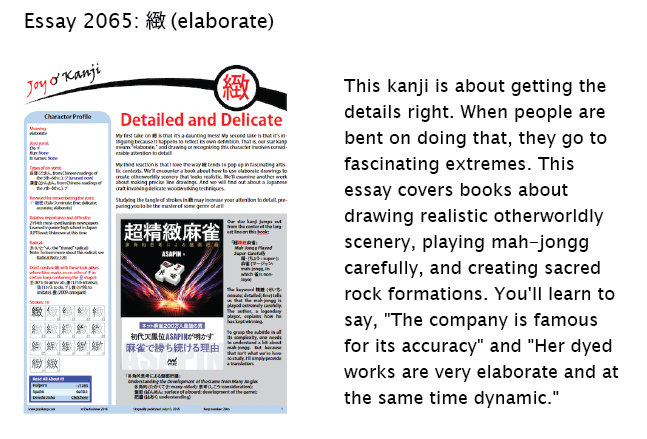What Cannot Be
I want to share with you one of my favorite images from the new essay 2065 on 緻 (elaborate):
I'm surprised how much I like this book cover, as it depicts an overwhelming amount of industrial ugliness.
The illustrator, who goes by the pen name 六七質 (むなしち), creates surreal worlds and makes them completely believable by using insane levels of detail and juxtaposing the mundane with what cannot be.
The cover art reflects that strategy, as does the title, which features 緻密 (ちみつ: elaborate):
「幻想的な背景を描く」
Drawing Fantastical Backgrounds
幻想的 (げんそうてき: fantastical, magical, wondrous);
背景 (はいけい: background scenery); 描く (えがく: to draw)
「緻密なドロウイングでつくるリアルな異空間」
Using Elaborate Drawings to Create a Realistic Imaginary World
つくる (作る: to make); リアル (realistic); 異空間 (いくうかん:
unusual space; other dimension)
I asked my proofreader about this word:
背景 (はいけい: background scenery)
I wanted to know how it differed from this term:
景色 (けしき: scenery)
Here's what he told me: 背景 is "scenery in the background" or just "background" (in a drawing, painting or photograph). "Taking Munashichi's illustration collection as an example," he said, "each illustration has people in the foreground, scenery in the background. Hence, 背景 applies. In other words, the book doesn't focus on how to draw people. It focuses on how to draw background scenery. Suppose there's a place famous for its beautiful scenery. One can go there to see the 景色, not the 背景, because if one is interested in the scenery itself, it's not in the 'background' anymore."
Great distinction! And it's easy enough to remember which word is which (even though they both include 景) because 背 means "back," as in the body part with the spinal column.
I feel extra fond of the book cover for having led to this moment of enlightenment!
I'm also excited to hear that detail is the key to making a supernatural world believable because that matches what I've picked up elsewhere.
For instance, I recently read somewhere (where?!) that Walt Disney made great strides in animation by respecting the laws of physics. If a character is run over, he becomes very flat, but he also grows quite long, so there's a conservation of mass that makes sense to viewers.
Two of my favorite writers excel at creating believable alternate worlds. Haruki Murakami does that in more books than I can count, and Kazuo Ishiguro did it quite well in The Buried Giant. Both authors follow the rule laid out above; they ground the reader in mundane realities and then casually refer to a supernatural feature of that fictional world.
With Murakami's 1Q84, we hear at length about a horrific traffic jam that makes a woman late for a meeting—and then she notices two moons hanging in the sky.
Ishiguro's Buried Giant begins with a paragraph about the moorland of England, the roads left by Romans, and icy fogs over rivers—and "the ogres that were then still native to this land" (p. 3).
Speaking of Ishiguro, I'm currently reading Conversations with Kazuo Ishiguro, a collection of interviews. I find it riveting. Over and over I've been so struck by comments that I wish I had someone reading it with me so we could discuss certain passages.
That includes one question on page 22, a question so rude that it practically made my jaw drop: "Your prose is emotionally drained, distant and deliberately flattened, isn't it?" To his credit, Ishiguro wasn't the least offended by this "question," or if he was, he certainly didn't let on!
Born in Nagasaki, he moved with his parents to England at age five, and his statements about Japanese culture are so authoritative that I'm bound to believe him. After all, he's a Nobel Prize winner, so he must know what he's talking about, right? I assumed so until I read his take on kanji, in which nearly everything he said is wrong!
Here's the question put to him on page 17: "Do you write Japanese?"
The answer: "No, I don't. It is a formidably difficult language to master unless you grow up with it, I think. I should explain to you that in Japanese there are two phonetic alphabets and then there is this thing which is probably what most Western people think of as written Japanese. This consists of characters taken over from the Chinese script many centuries ago."
So far so good, though "taken over" is a little odd. He continues:
"There are about two thousand of these and you need to master at least a thousand to be literate." What?! Try changing "two thousand" to "at least fifty thousand" and strike "at least a thousand," replacing it with "2,136" to allude to the Joyo set. (When he did the interview decades ago, the magic number was lower—"just" 1,945—but clearly he was way off.)
"Each one of these characters is rather intricate and difficult to reproduce. You have to be technically quite deft to reproduce one that looks respectable." Really? Each one? Surely anyone can draw respectable versions of 木, 日, 一, 口, and dozens or hundreds more!
"One character doesn't stand for one word or one concept. The same one could stand for different concepts entirely, depending on how they are combined." Yes, kudos to him for knowing that this changeability is possible. But it isn't inevitable. The subject of the newest kanji essay, 緻, means "elaborate" no matter which way you look at it.
"It is a very difficult written language to learn and, of course, when I left Japan at the age of five my education came to a bit of an end as regards learning to write Japanese. My parents made an effort to continue it, but it is a hopeless task, I suppose, if you are in a different country." Difficult, yes. Hopeless if you're outside Japan? Not in the slightest!
Because he was commenting here on an area where I happen to know something, I'm being nitpicky. I actually feel a bit bad about that because I very much like the Ishiguro I encounter on the page, as well as the man who gave a talk in Berkeley a few years back to promote The Buried Giant.
On other topics I'm willing to give him the benefit of the doubt. He grew up with Japanese parents but has lived at a remove from Japan for most of his life, so he has both an insider's and an outsider's point of view on the culture, and I'm extremely interested in his viewpoints. Still, can he be right when he says things such as these:
p. 31: "There's a reluctance on the part of the West to think of the Japanese as human beings, and this is encouraged by the Japanese themselves who like to think that they're very different from everybody else too. Both sides are to blame for this mystification." (Yes, I know the Japanese see themselves as different, but do they want to be seen as nonhuman?!)
p. 33: "Everybody in society has a patron, who you go to consult over all kinds of matters. It's a crucial feature of Japanese society." (That's the first I've heard of this. Can it be true?!)
pp. 32–33: The thing about Japanese psychology is they'll fight like beserk against an enemy as long as that person is identified as an enemy. That seems to be very embedded in the Japanese psyche. But once it has then been established that whoever it is is no longer the enemy but in fact is your conqueror, your new teacher, then the Japanese don't seem to have any kind of mental block about switching completely and becoming very subservient and loyal to this new power.... This is the reason they were able to industrialise so rapidly when the rest of the Far East didn't... That is the way the Japanese culture seems to be shaped." (There are a lot of sweeping statements about cause and effect here, and I hardly know what to think.)
I've only read up to page 34, but I've already come across fascinating comments on all of these topics:
• power relationships in Japanese families
• the Japanese treatment of children
• the truth about how the Japanese view suicide (as opposed to Westerners' myths about how the Japanese long to kill themselves)
• nationalism in wartime Japan
• Nagasaki (his hometown), people's experience of the bombing there, and how the Japanese view the atomic bombings in general
• the Japanese perception of foreigners versus of Japanese who have lived abroad "too long"
If you read the book, let me know!
For now I'll leave you with a preview of essay 2065:
Catch you back here next time!
❖❖❖
Did you like this post? Express your love by supporting Joy o' Kanji on Patreon:




Comments